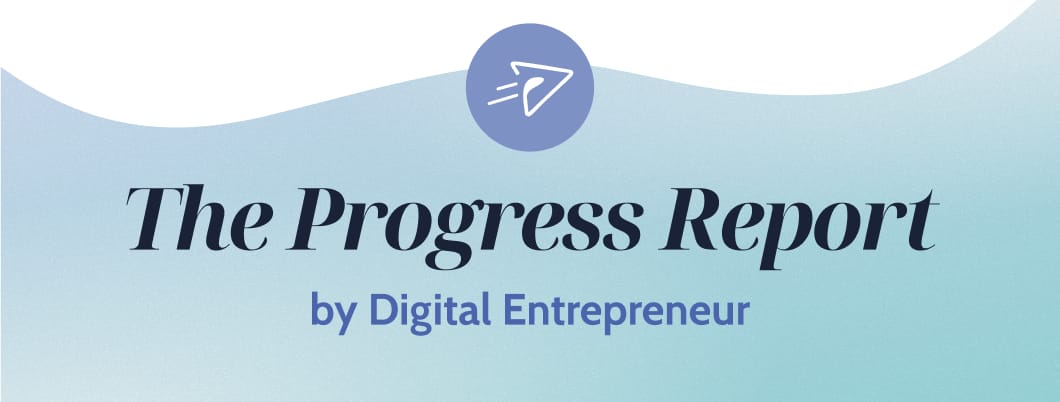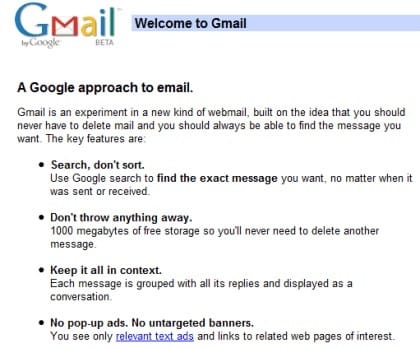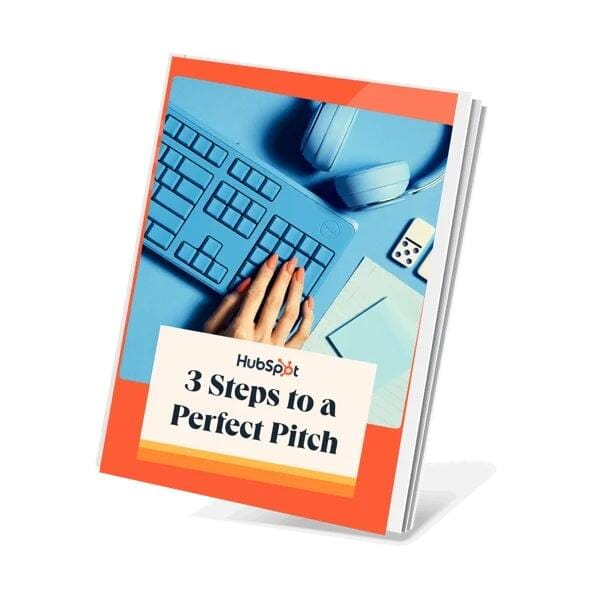
July 11, 2025
In partnership with

The guy who created Gmail didn’t own it.
Paul Buchheit built the email service that 1.8 billion people use daily. His innovation generates billions in revenue annually for Google.
He was entrepreneurial, and definitely reaps the rewards of this (💰 cough cough 💰), but he wasn’t a founder. He was employee #23.
Meanwhile, Ahammed Mirdas built and runs PluginHive. 51 employees, 70,000+ customers across 220 countries. He started, and actively runs, an extremely successful business, but doesn't classify himself as an entrepreneur.
Both of these classifications feel wrong.
Yet, according to Simon Sinek, there's no issue here at all.
Sinek distinguishes an entrepreneur as “a problem solver who sees the world differently.” A business owner simply… owns a business.
This kind of semantic argument usually annoys me, but after spitefully digging into it, I realized Sinek’s argument is pretty dang valid.
I still don’t think it matters how you classify yourself, but there are distinct approaches to running a business that are better-suited to different kinds of people. When you learn what works for you, you’ll find that things get a lot easier.
In this newsletter:
Why the distinction matters for your focus and energy
How these different mindsets show up in real businesses
A simple way to identify which one you actually are (and why it matters)
Sponsored
Say less, land more (deals, that is)
You know what you do. But do you know how to explain it clearly to someone else in under a minute?
Hard to admit, but it’s deceptively hard.
I relate it to a game of chess. You want to deliver a killer opening move… but not expose everything from the start.
I know that saying ‘treat it like chess’ isn’t the most actionable advice. But this is.
HubSpot's free 3-Step Pitch Template gives you a proven framework to:
Nail your intro in under 60 seconds
Communicate real value without rambling
Make even complex products sound compelling
Perfect for investor decks, website copy or that LinkedIn summary you keep putting off.
Weekly Insight

In 2001, Paul Buchheit—employee number 23 at Google—saw email and thought, “This is fundamentally broken.”
Hotmail gave you 2MB of storage; Yahoo gave you 4MB. The interfaces were painfully slow. Everyone accepted this as “how email works.”
When Larry Page told him to “build some kind of email something,” Buchheit started by rethinking how email should work. He could’ve just spun up a Google-branded client with comparable storage and the same ol’ freemium offering, but Buchheit wasn’t willing to write email off as a kinda-crappy product. He saw a problem to solve.
This is what Sinek means by “seeing the world differently.” Buchheit looked at the same meh product everyone else had, then envisioned something that didn't exist yet. Something with a better user interface, spam filtering and 1000MB of data right out the gate.

Buchheit took what was good about Google on web, then translated it to email.
The very definition of entrepreneurial.
Meanwhile, in Bangalore, Ahammed Mirdas looked at ecommerce shipping and saw pretty much the exact opposite kind of opportunity.
Store owners were drowning in manual tasks: printing labels, calculating rates, managing carriers. The solutions to these problems already existed, and they worked fine.
Mirdas just thought they could be executed a lot better.
“For our company, the focus has been more towards solutions than innovation,” Mirdas explains. “We identify the problems faced by ecommerce business owners and try to provide a business solution.”
Mirdas didn't try to reinvent shipping.
He built a thriving business by executing proven processes better than anyone else. PluginHive succeeds through operational strength, not innovation.
Here's Sinek's distinction in action: Buchheit solved problems that didn't have solutions yet. Mirdas built a business around solutions that already worked.
Both created massive value. Buchheit's problem-solving generated billions for Google (and hundreds of millions for himself), while Mirdas's execution built a business serving 70,000+ customers.
They just succeeded through completely different approaches.
Entrepreneurs care about solving problems.
Business owners care about growing and running their businesses.
What’s more important to you?
📚 Related Reading
14 examples of intrapreneurship & employee driven innovation in action by Sideways 6 | How employee ideas created Amazon Prime, Flamin' Hot Cheetos, Post-it Notes and more.
Entrepreneurs vs small business owners: key differences explained by Niclas Schlopsna | Further exploration of how risk tolerance, growth goals and approaches to innovation can help classify you.
Differentiating entrepreneurs from small business owners: a conceptualization by James W. Carland, et al. | An academic paper for my fellow nerds out there. Offers a conceptual framework for distinguishing between these two groups.
Intent to Action
Most people think they know which camp they're in. But they’re usually basing their answer on a knee-jerk reaction. Not critically thinking about it.
It’s because we tend to identify with aspirational labels rather than honest self-assessment. Everyone wants to be the “visionary entrepreneur” who disrupts industries.
Frankly, it just sounds sexier than “the person who executes really well.”
But fighting against your natural inclinations is exhausting and counterproductive.
If you're naturally drawn to solving novel problems, forcing yourself to incrementally improve what exists will drain your energy.
If you thrive on perfecting systems, chasing the next breakthrough innovation will leave you frustrated.
You won’t increase your money or happiness by trying to become something you're not. You need to double down on what you're already good at.
Step 1: Energy audit
Trust what energizes you.
For the next three days, pay attention to how different activities affect your motivation and focus.
When do you feel most alive and engaged? Is it when you create something new? Improve something you already have?
Which non-urgent problems naturally sidetrack you? Is it improving existing processes? Or dreaming up opportunities for net-new creation?
What do you find fun, that others find tedious or boring?
Often, our biggest strengths are simply others’ weaknesses that we don’t share.
It's extremely unlikely that everything will line up into one camp or the other. For example, I love tackling new problems, but I can’t stop myself from formatting messy spreadsheets.
Ambiguity and messiness here is fine. You're just looking to find the classification that better represents you, so you know, and can lean into, your stronger inclination.
Step 2: Stop fighting yourself
Most people share the same villain: self-doubt.
We think we need to be something other than we are, then proceed to put people who exemplify those traits on an unnaturally high podium.
But those people aren’t perfect; they aren’t even that different from you. They just know themselves.
If you're a natural problem-solver…
Stop feeling guilty that you don't have a “real business” yet. Your value comes from seeing solutions others miss, not from having employees or revenue. Don’t get distracted by “revenue hacks” or the “perfect marketing funnel.”
Just develop your solution(s).
Spend more time on discovery; talking to people and cobbling together solutions. If you try to make your systems perfect before you have comfortable revenue, you'll burn yourself out.
When you do need operational excellence, hire for it or partner with someone who thrives on execution.
If you're a natural system-builder…
Stop feeling bad that you're not “disrupting” something. Building a reliable, profitable business is hard, and it takes an incredibly valuable skill set.
The world needs both types of people.
Spend your time making incremental improvements and outperforming others in your niche. You don’t have to be a visionary to make things work.
When you find yourself in need of “breakthrough” thinking, bring in someone who sees problems differently. They’ll need you to execute their vision. And it just so happens that you can do it better than anyone else.
Either way…
You’re going to be excellent at certain things, and not so great at others. If you spend all your time trying to shore up weak points, you’ll doom yourself to “average.”
If you lean into what you're naturally suited for, what to solve for becomes much clearer.
Don’t waste energy trying to be someone else.
Find out who you are and do it on purpose.
Sponsored
Create How-to Videos in Seconds with AI
Stop wasting time on repetitive explanations. Guidde’s AI creates stunning video guides in seconds—11x faster.
Turn boring docs into visual masterpieces
Save hours with AI-powered automation
Share or embed your guide anywhere
How it works: Click capture on the browser extension, and Guidde auto-generates step-by-step video guides with visuals, voiceover, and a call to action.
Closing Thought
The hardest part about this distinction isn't identifying which one you are. It's feeling good enough, despite your weaknesses.
This is the only way you win.
Paul Buchheit didn't become a billionaire by learning to run a business better. Ahammed Mirdas didn't build a successful company by trying to revolutionize shipping.
They succeeded by doubling down on what they were naturally good at.
Next week, I’m digging into productization. Getting you off the hamster wheel and into earn-while-you-sleep mode.
See you then. 👋


